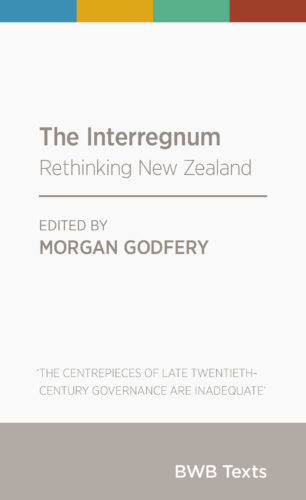In more sophisticated countries, informed citizens go to considerable lengths to detect any biases among the people reporting the news. This is necessary to make sure that one develops a balanced, nuanced and independent opinion. Kiwis don’t generally bother with such things, preferring instead to believe everything we’re told like the good little lambs we are – except for this article.
It’s often remarked upon, by foreign visitors, that New Zealanders blindly believe everything they hear in the news. Conditioned into obedience by a brutal state education system that encourages bullying, social and emotional abuse, Kiwis are too afraid to question anything even vaguely resembling an authority, such as a television.
Given that we don’t question what the media is trying to tell us, it’s worthwhile figuring out who owns our media, because these same people effectively own our beliefs and opinions. In other words, let’s find out who own our minds.
We can find a ranked list of the major players in New Zealand cyberspace from Alexa. The two major internet portals in New Zealand are the New Zealand Herald and Stuff. You could confidently argue that the New Zealand online mediascape was an effective duopoly, with NZH and Stuff the only real players.
New Zealand Media and Entertainment (NZME) controls the New Zealand Herald brand, ranked by Alexa as the 9th biggest website in New Zealand. NZME is a large media conglomerate (by NZ standards, anyway), as can be seen from the list of newspapers they own at the bottom of their company page.
Finding out who owns NZME is not straightforward, because they are a publicly traded company on both the New Zealand and Australian stock exchanges. Helpfully, their own investor relations page lists their top 20 shareholders, but this doesn’t lead very far. All of the major shareholders are banks or holding companies for banks.
Number one on the list is Citicorp Nominees Pty Ltd, which is based in Sydney. According to Bloomberg, this company is a subsidiary of Citicorp Pty Ltd, which has been incorporated since 1954 and “provides a range of banking and financial products and services to retail, small business, corporate, and institutional clients primarily in Australia.”
One would think that this would surely be the end of the trail, but no. Citicorp Pty Ltd is itself a subsidiary, this time of Citigroup Holding (Singapore) Private Limited. This too, is a subsidiary: of Citigroup Asia Pacific Holding LLC, itself a subsidiary of Citi International Investments Bahamas Limited, itself a subsidiary of Citi Overseas Holdings Bahamas Limited, a child entity of Citigroup Inc.
Citigroup is a gigantic American bank, one large enough to be considered “too big to fail”, with its origins in the City Bank of New York, chartered in 1812. The closest Citigroup has to an owner, at 7.06% of the shareholding, is Vanguard Inc., “One of the world’s largest investment management companies” (as per their company page). In second place, at 4.76% of the shareholding, is State Street Corporation, another investment management bank. Third, with 4.51%, is BlackRock Inc., yet another global investment management corporation.
So that line of investigation doesn’t lead to any specific names, but neither is it any easier trying to figure out who is behind any of the other of New Zealand Media and Entertainment’s major shareholders.
J P Morgan Nominees Australia Ltd is at third place on the NZME shareholder’s list, with 12.69%. Finding out out who owns JP Morgan Nominees Australia Ltd is no easy task, as the article linked here demonstrates. One passage from the linked article reads “Unfortunately, it is practically impossible to track down the identities of those underlying shareholders through the various financial structures that hold shares for each other and on behalf of each other.”
If it’s practically impossible to find out who owns NZME, what about finding out who owns Stuff, the 3rd largest website in New Zealand?
Investigating this is just a shorter path to the same place. The Stuff brand is owned by Fairfax New Zealand Limited, a subsidiary of Fairfax Media Ltd., which is also publicly traded on the ASX. As it turns out, the second-largest shareholder of Fairfax Media Ltd. is none other than Vanguard Inc.
They only own 2.26% of the shares, however, so can only give us a clue as to the ownership of Fairfax Media Ltd. Looking down the list of funds and institutions that own shares in Fairfax, there’s little more than a pile of asset management companies, wealth funds and banks. As with Vanguard, BlackRock also appears on the list of major owners of both Citigroup and Fairfax Media Ltd.
The story with television media is little different to the story just described with print and online media. The New Zealand television market is, like the print and online media markets, an effective duopoly between Television New Zealand (TVNZ) and MediaWorks New Zealand.
TVNZ is Government-owned, but is almost entirely funded by commercials and is therefore little different to any other commercial broadcaster. MediaWorks New Zealand, for its part, is entirely owned by Oaktree Capital Management, which is (you guessed it) another global investment and wealth management fund.
In summary, no-one has any fucking idea who owns the New Zealand media, apart from the small niche carved out by TVNZ and the independents. Trying to pin it down to any one person is like trying to catch shadows in a jar. The best one can say is that the New Zealand media is ultimately controlled by global wealth management funds and corporations and their nominated representatives.
Being owned by such institutions tells us that the New Zealand media is run for profit and probably has little agenda other than commercial. In other words, there is little in the way of direct political propaganda or slanted editorial content, but one can expect the quality of the journalism to degrade to that which appeals to the lowest common denominator in society. Indeed, it has.
The astute reader will have drawn a connection between all of this bank ownership and the never-ending series of “I became a homeowner at age 21”-style stories. The reason for this is the banks benefit directly from a shallow, consumerist, disposable culture in which it’s considered normal for people move away from their parents and get a massive mortgage so that they can pay hundreds of thousands of dollars of interest to a gigantic, parasitic investment corporation.
In other words, the owners of the New Zealand media directly make money from consumerist culture, in particular from people taking out loans to buy shit that they don’t need. This is why all manner of wasteful, extravagant and unnecessary consumer purchases are advertised, and normalised, by the New Zealand media.
*
If you enjoyed reading this essay, you can get a compilation of the Best VJMP Essays and Articles of 2017 from Amazon for Kindle or Amazon for CreateSpace (for international readers), or TradeMe (for Kiwis).



